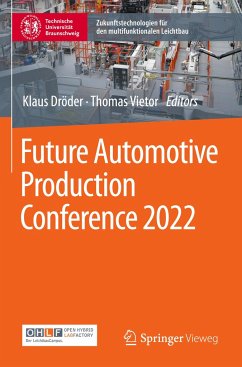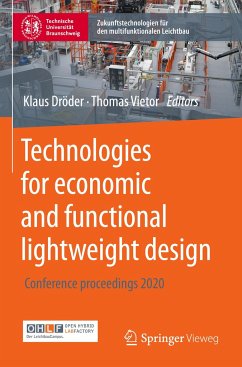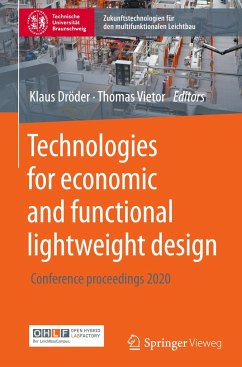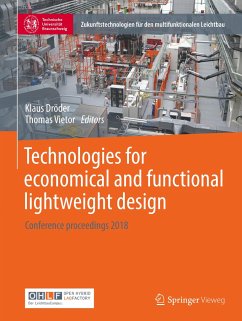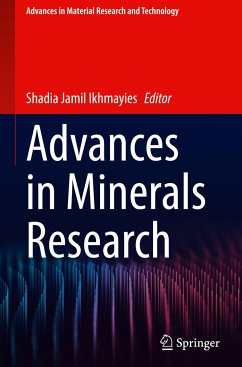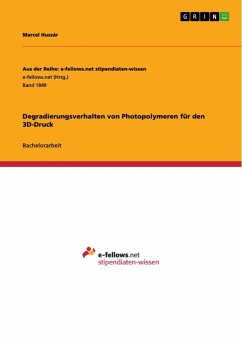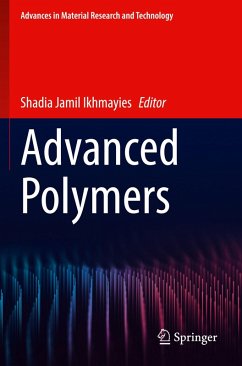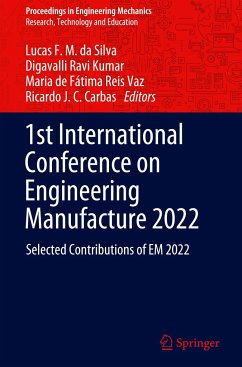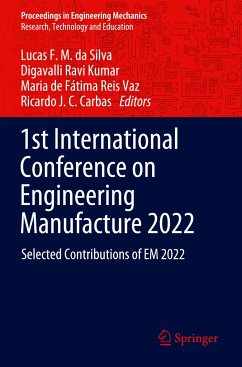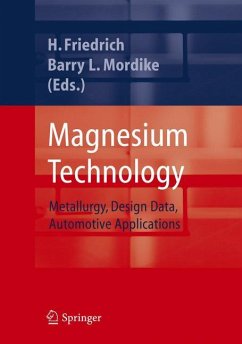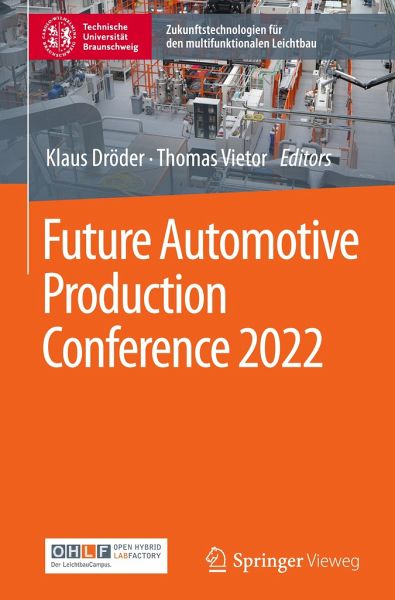
Future Automotive Production Conference 2022

PAYBACK Punkte
76 °P sammeln!
This book comprises the proceedings of the conference "Future Automotive Production 2022", which took place in Wolfsburg.The conference focused on hybrid lightweight design, which is characterized by the combination of different materials with the aim of improving properties and reducing weight. In particular, production technologies for hybrid lightweight design were discussed, new evaluation methods for the ecological assessment of hybrid components were presented and future-oriented approaches motivated by nature for the development of components, assemblies and systems were introduced.Ligh...
This book comprises the proceedings of the conference "Future Automotive Production 2022", which took place in Wolfsburg.
The conference focused on hybrid lightweight design, which is characterized by the combination of different materials with the aim of improving properties and reducing weight. In particular, production technologies for hybrid lightweight design were discussed, new evaluation methods for the ecological assessment of hybrid components were presented and future-oriented approaches motivated by nature for the development of components, assemblies and systems were introduced.
Lightweight design is a key technology for the development of sustainable and resource-efficient mobility concepts. Vehicle manufacturers operate in an area of conflict between customer requirements, competition and legislation. Material hybrid structures, which combine the advantages of different materials, have a high potential for reducing weight, while simultaneously expanding component functionality. The future, efficient use of function-integrated hybrid structures in vehicle design requires innovations and constant developments in vehicle and production technology. There is a great demand, especially with regard to new methods and technologies, for "affordable" lightweight construction in large-scale production, taking into account the increasing requirements with regard to variant diversity, safety and quality.
The conference focused on hybrid lightweight design, which is characterized by the combination of different materials with the aim of improving properties and reducing weight. In particular, production technologies for hybrid lightweight design were discussed, new evaluation methods for the ecological assessment of hybrid components were presented and future-oriented approaches motivated by nature for the development of components, assemblies and systems were introduced.
Lightweight design is a key technology for the development of sustainable and resource-efficient mobility concepts. Vehicle manufacturers operate in an area of conflict between customer requirements, competition and legislation. Material hybrid structures, which combine the advantages of different materials, have a high potential for reducing weight, while simultaneously expanding component functionality. The future, efficient use of function-integrated hybrid structures in vehicle design requires innovations and constant developments in vehicle and production technology. There is a great demand, especially with regard to new methods and technologies, for "affordable" lightweight construction in large-scale production, taking into account the increasing requirements with regard to variant diversity, safety and quality.





